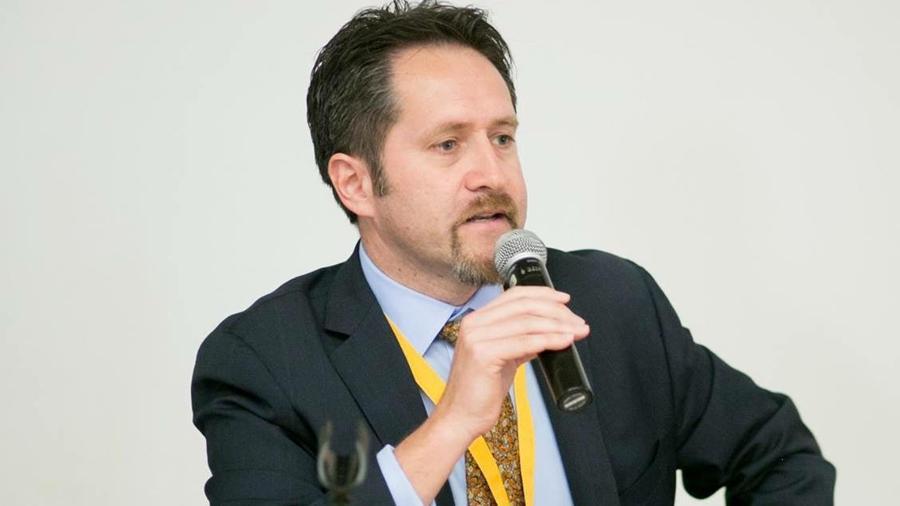Àƒª¢”∞‘∫ Magazine Finding What Works to Prevent Violence¬Ý

Enrique Roig ’90 disputes the narrative about youth joining violent causes. “They’re not motivated by religion or ideology,” he says. “Instead, a variety of individual risk factors such as dysfunctional families, drug use, peer pressure and risk-taking lead them into gangs or extremist groups.”
A citizen security expert for Creative Associates International, Enrique has worked with communities in Central and South America and Northern Africa to prevent youth violence and counter violent extremism. “We’ve done a lot of exchanges with cities in the United States to learn about successful programs preventing gangs,” he says. An 18-month project in Tunisia applies these strategies to prevent recruitment by extremist groups.
Enrique started by assessing the threat of gangs in Central America for the United States Agency for International Development (USAID) in 2005. To prevent violence, he recommended that USAID invest in work with at-risk youth and their families as well as in policing. “We wanted to balance law enforcement with community programs and provide exit strategies so youth can leave gangs,” he says. Today, focusing on prevention as well as law enforcement—on places, people and behaviors—has become the “place-based strategy” the U.S. government recommends.
Enrique focuses on data, a strategy that has helped U.S. cities combat gangs. His work combines statistics about individual risk factors with locations where violence occurs to target the youth most susceptible to gangs. “We seek to build the capacity for data collection in Central America,” he says. “We explore what each community is doing and whether they’re getting the resources they need.”
His background includes working for human rights in Colombia for three years as a contractor with USAID followed by two years in Belgrade, Serbia, supporting its efforts to join the European Union. As coordinator of Central American security at USAID, he organized responses to the high rate of violence in Guatemala, Honduras and El Salvador. Through Mercy Corps, he supported humanitarian assistance in the Balkans after NATO liberated Kosovo from Serbian aggression. During his 20-year career he has worked in 23 countries promoting democracy, preventing conflict and assisting those in need.
‚ÄúI never imagined I would be doing this,‚Äù he says. A political science major at Àƒª¢”∞‘∫, he participated in the American Studies program in Washington, D.C., and served an internship at the Ecuadorian Embassy. He earned a master‚Äôs in international relations with a focus on Latin America at American University and interned at the Institute for Central American Studies and the National Democratic Institute for International Affairs. He found his first job with Creative Associates; his current position is his third stint with this major USAID contractor focused on transition programing, governance and security.
Enrique grew up in Carpinteria and followed his high school track coach to Àƒª¢”∞‘∫, where he competed in cross country and track. He met his wife, Julia, during the American Studies program. She graduated from Whitworth and works in international development. They live in Bethesda, Maryland, with their two teenage children.
“The United States has an important role to play in foreign policy by supporting political and economic development in partner countries to prevent conflict and violence,” he says. “It’s a partnership; we can’t do anything alone because it won’t be sustainable. We need to understand the local context and culture. There is a lot of ambiguity and no quick fixes. We just need to keep working to develop actionable, evidence-informed programs.”